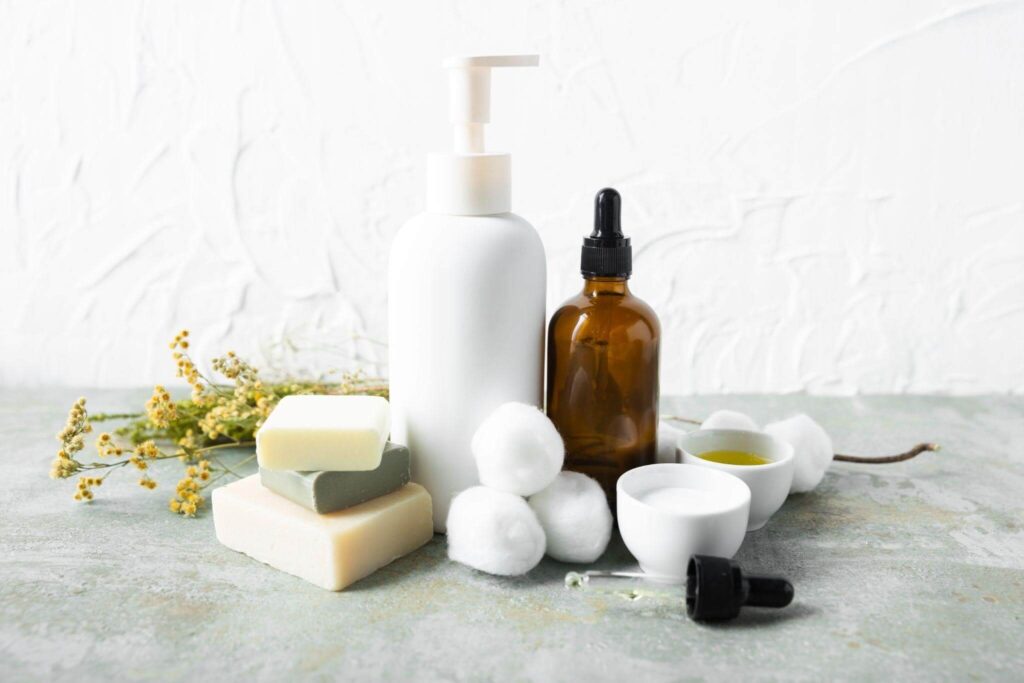What skincare products do I need based on my skin type?

Are you looking for a suitable skincare routine but don’t know where to start? Before putting it together, you must note the main issue: the characteristics of your skin and its specific needs. In this article, we will guide you to discover the different types of skin and the appropriate products you need to take care of it and achieve the best results.
Why is it important to know my skin type?
Before thinking about your skincare routine, it is essential to know in depth the characteristics and needs of your skin. Skin types are oily, dry, combination, sensitive, or normal, and knowing which one is yours allows you to select the right products to address concerns and maximize benefits.
For example, if you have dry skin, it is best to use moisturizing products that help restore the skin barrier. On the other hand, if you have oily skin, you should use products that regulate sebum production.
You should keep in mind that if you use products that are not suitable for your skin, you are likely to worsen existing problems or cause new ones. Therefore, to personalize your routine, the key is to know your skin’s needs and challenges.
Skin type and suitable products

As we said, there are different types of skin, and each one has its characteristics and identified needs. Below, we detail each of them. Additionally, we answer the question what skincare products do I need for my skin type:
1. Normal Skin
Normal skin type is the most balanced. That is, it is neither too dry nor too oily. Its texture is soft, and the pores are barely visible. People with normal skin do not have major concerns, which does not mean they should not take care of it to keep it healthy and protected.
Recommended Products
- Gentle cleanser: opt for a gentle cleanser that is not too abrasive to maintain the skin’s natural balance.
- Light moisturizer: use a light moisturizer to keep skin soft and hydrated without clogging pores.
- Sunscreen: even if normal skin is not prone to problems, it is essential to protect it from sun damage with a broad-spectrum sunscreen of at least 30 SPF..
Read also Rock the Look: How to Style Men’s Jewelry with Confidence
2. Oily Skin
The main problem with oily skin is that it produces excess sebum, generating larger pores, facial shine, and acne. To keep the skin healthy and looking good the key is to control sebum production, avoiding dehydrating the skin.
Recommended products:
- Cleanser with salicylic acid: salicylic acid helps unblock pores and reduce sebum production, making it ideal for oily skin.
- Oil-Free moisturizer: to keep skin balanced without clogging pores, look for a lightweight and oil-free moisturizer.
- Oil-free sunscreen: opt for a sunscreen formulated for oily skin that is oil-free and non-comedogenic.
3. Dry Skin
About dry skin, the problem is that it lacks hydration, leading to dryness, peeling, and sensitivity. The key is to restore the skin barrier and retain moisture to treat this problem.
Recommended products:
- Gentle, alcohol-free cleanser: avoid abrasive ones that can worsen dryness and opt for a gentle, alcohol-free cleanser.
- Intensive moisturizer: use a moisturizer rich in moisturizing ingredients such as hyaluronic acid and glycerin to restore skin’s moisture.
- Facial oil: apply a nourishing facial oil before your moisturizer to seal in moisture and protect the skin against dryness.
4. Combination Skin
For its part, combination skin combines dry areas and oily areas. Generally, the T zone (forehead, nose, and chin) tends to be more oily than the rest of the face.
Recommended products:
- Balancing cleanser: look for a gentle cleanser that removes excess oil in the T-zone without dehydrating dry areas.
- Light face moisturizer: use a light moisturizer on dry areas and an oil-free formula on the T-zone.
- Clay mask: apply a clay mask once a week to the T-zone to control excess oil and minimize pores.
5. Sensitive Skin
Finally, sensitive skin refers to skin that is more prone to irritation, redness, and adverse reactions to certain ingredients.
Recommended products:
- Fragrance- and dye-free cleanser: opt for a gentle cleanser without irritating ingredients that can cause reactions on sensitive skin.
- Hypoallergenic moisturizer: look for a hypoallergenic, fragrance-free moisturizer that soothes and protects sensitive skin.
- Mineral sunscreen: use a mineral sunscreen with zinc oxide or titanium dioxide, which is less likely to irritate sensitive skin.
Now that you know the differences between skin types and which products are suitable for each one, go ahead and start your skincare routine to achieve healthy and luminous skin.





